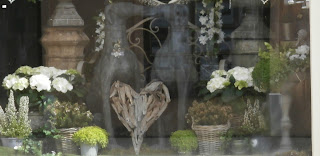I chose this weeks poem just because I thought the title was apt. However, the English, poet and writer Samuel Johnson's words tell us a young author's troublesome journey in search of his fame and fortune.
The Young Author
When first the peasant, long inclined to roam
Forsakes his rural sports and peaceful home
Pleased with the scene the smiling ocean yields
He scorns the verdant meads and flowery fields
Then dances jocund over the watery way
While the breeze whispers, and the streamers play
Unbounded prospects in his bosom roll
And future millions lift his rising soul
In blissful dreams he digs the golden mine
And raptured sees the new-found ruby shine
Joys insincere, thick clouds invade the skies
Loud roar the billows, high the waves arise
Sickening with fear, he longs to view the shore
And vows to trust the faithless deep no more
So the Young Author, panting after fame
And the long honours of a lasting name
Intrusts his happiness to human kind
More false, more cruel, than the seas, or wind
'Toil on, dull crowd' (in ecstasies he cries)
'For wealth or title, perishable prize
While I those transitory blessings scorn
Secure of praise from ages yet unborn'
This thought once formed, all counsel comes too late
He flies to press, and hurries on his fate
Swiftly he sees the imagined laurels spread
And feels the unfading wreath surround his head
Warned by another's fate, vain youth, be wise,
Those dreams were Settle's once, and Ogilby's
The pamphlet spreads, incessant hisses rise
To some retreat the baffled writer flies
Where no sour critics snarl, no sneers molest
Safe from the tart lampoon, and stinging jest
There begs of Heaven a less distinguished lot
Glad to be hid, and proud to be forgot
Samuel Johnson 1709-1784






















